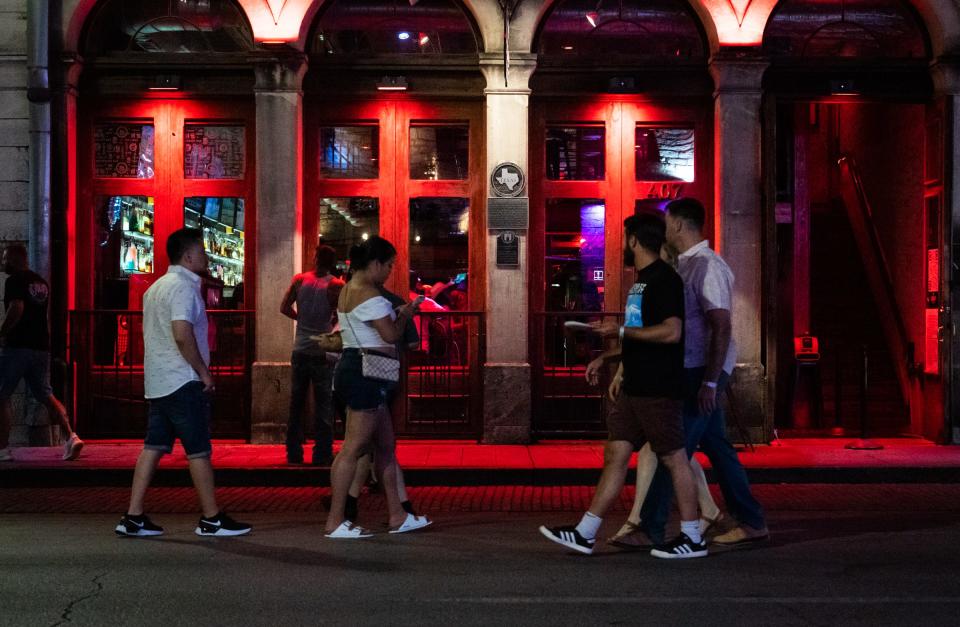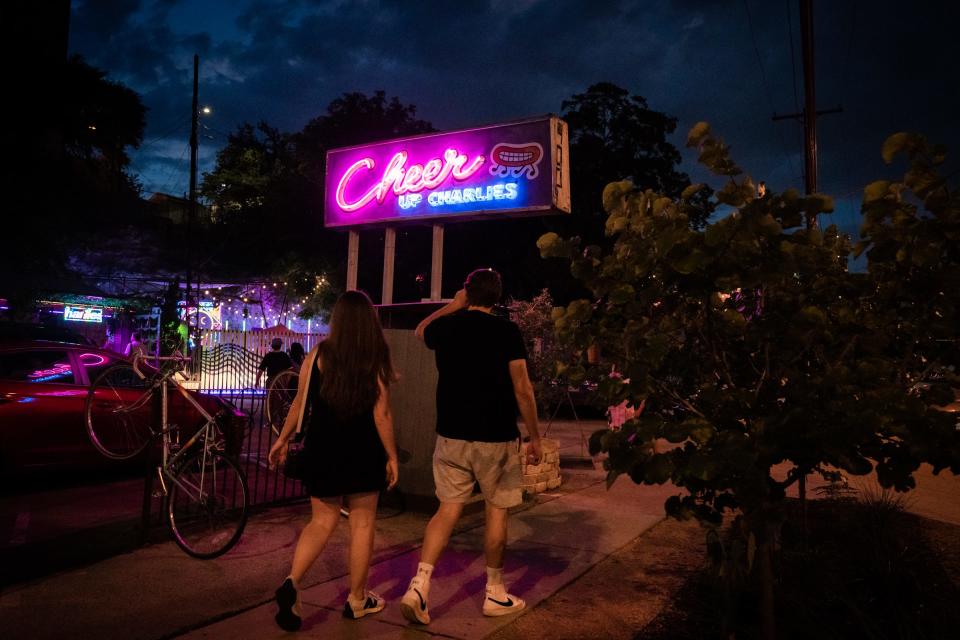Rising rent, location restrictions hinder live music venues in Austin, city says
The city of Austin could soon expand its footprint for live music venues as some say rising rents and the need for additional space pose serious threats to the live music scene.
Live music venues are currently treated as cocktail lounges in city code, which heavily restricts the areas in which they're allowed to operate, said Donald Jackson, business process consultant for the city's Economic Development Department.
Defining live music venues that way is detrimental to their business models, advocates say. They're pushing for a definition specific to the venues themselves.
"What we're trying to do is put in (a definition) that recognizes the distinct importance of live music venues to Austin, and the Austin economy, and the Austin community that lets them be in more parts and more zones throughout the city without necessarily sacrificing community oversight," Jackson said.
But not all agree, as some fear this change could simply spur the growth of venues more interested in alcohol sales than providing live music.
The definition changes are still in draft form, subject to revisions, though they're likely to be presented to the City Council before the end of the year.
The Planning Commission will hold a public hearing on the code changes at 6 p.m. Tuesday in the City Council Chambers at City Hall.
More: Could Austin musicians soon get a pay raise at city events? City Council set to decide.

Business models differentiate bars, live music venues
The proposed definition's current language stipulates that performance venues, which incude live music venues, must allocate a minimum of 50% of gross floor area for production and programming space, including "stages, green rooms, box offices and ticketing booths, audience areas, and equipment dedicated to producing plays, motion pictures, or other performances."
Erica Shamaly, music and entertainment division manager for the department, said the additional expenses associated with operating a live music venue, paired with the prime rent locations they oftentimes inhabit, put enormous financial strain on the businesses that bars have easier times overcoming.
"There's just really not enough beer that you can sell in all of the world to cover the cost of all of that," Shamaly said.
Jackson said live music venues will still be allowed to sell alcohol in line with normal operating procedures for bars. Each music venue expanding to new parts of the city must be approved for a conditional use permit by the city's Land Use Commission.
The definition changes are projected to increase the number of lots live music venues will be able to utilize by 2,000%, or 12,700 lots, according to a recent presentation by the Economic Development Department to the City Council.
More: Meet 'Bongo Man' Eric Pounds, a homeless musician bringing music to the streets of Austin
Could changes lead to increases in places that sell alcohol?
The proposed definition changes have received widespread support from staffs across the city, but not from Betsy Greenberg, a commissioner on the city's Codes and Ordinances Joint Committee, who voted against them in late June. She cast the sole dissenting vote on the six-person committee.
In an email, Greenberg wrote that she voted against the definition because she worried that it would only expand alcohol sales and noise to new zones without actually requiring that a performance take place.
"This is intended to support Austin’s musicians, but really it will just increase alcohol sales," Greenberg wrote.
The proposal allows venues to operate in a variety of new zoning districts, at times with conditional use permits. Those districts include commercial recreation zones, commercial highway services zones and general office zones.
Rebecca Reynolds, president and founder of the advocacy group Music Venue Alliance Austin, said specifying a definition for live music venues will allow the city to closely regulate the venues properly, instead of regulating them like bars. Greenberg acknowledged the definition changes are still in the early planning stages, so details of the parts she takes issue with are likely to be hashed out.
Jackson said the definition doesn't require performances because it's too difficult to monitor and enforce. Instead, requiring the elements used in a performance — stages, lighting setups and audience areas — makes it easier for inspectors to evaluate which venues are likely to hold performances.
After the passage of the definitions into city code, the city plans to move forward with establishing an incentive program for live music venues to come to Austin, Jackson said.

Live music is 'DNA of the city'
Reynolds said the definition changes are meant to foster the preservation of live music venues in their current locations and the growth of new venues eyeing Austin as their potential homes.
The city already brings in about $1.8 billion annually in music revenue, according to Austin Music Movement, with events such as the South by Southwest and Austin City Limits festivals reinforcing Austin's allure as the "live music capital of the world." In its efforts, the city is trying to increase that number.
More: Austin named 7th best hotspot in the world for music lovers
That doesn't mean music venues don't face issues in the city, though. Anne Gatling Haynes, chief transactions officer at the Austin Economic Development Corp., said when live music venues fail or are priced out, it affects the city in a multitude of ways.
"I grew up in the Northeast, in the Boston area, seeing lots of independent live music venues disappear from the city over a period of time, and that's happening here," Haynes said. "I think more than just losing, I would say, the DNA of the city, you're losing this creative class."
Haynes said, as an optimist, she believes there will always be live music venues in Austin, but without city intervention, there might be a point at which the number and quality of venues has noticeably deteriorated.
This article originally appeared on Austin American-Statesman: Austin is considering code changes to strengthen live music scene

